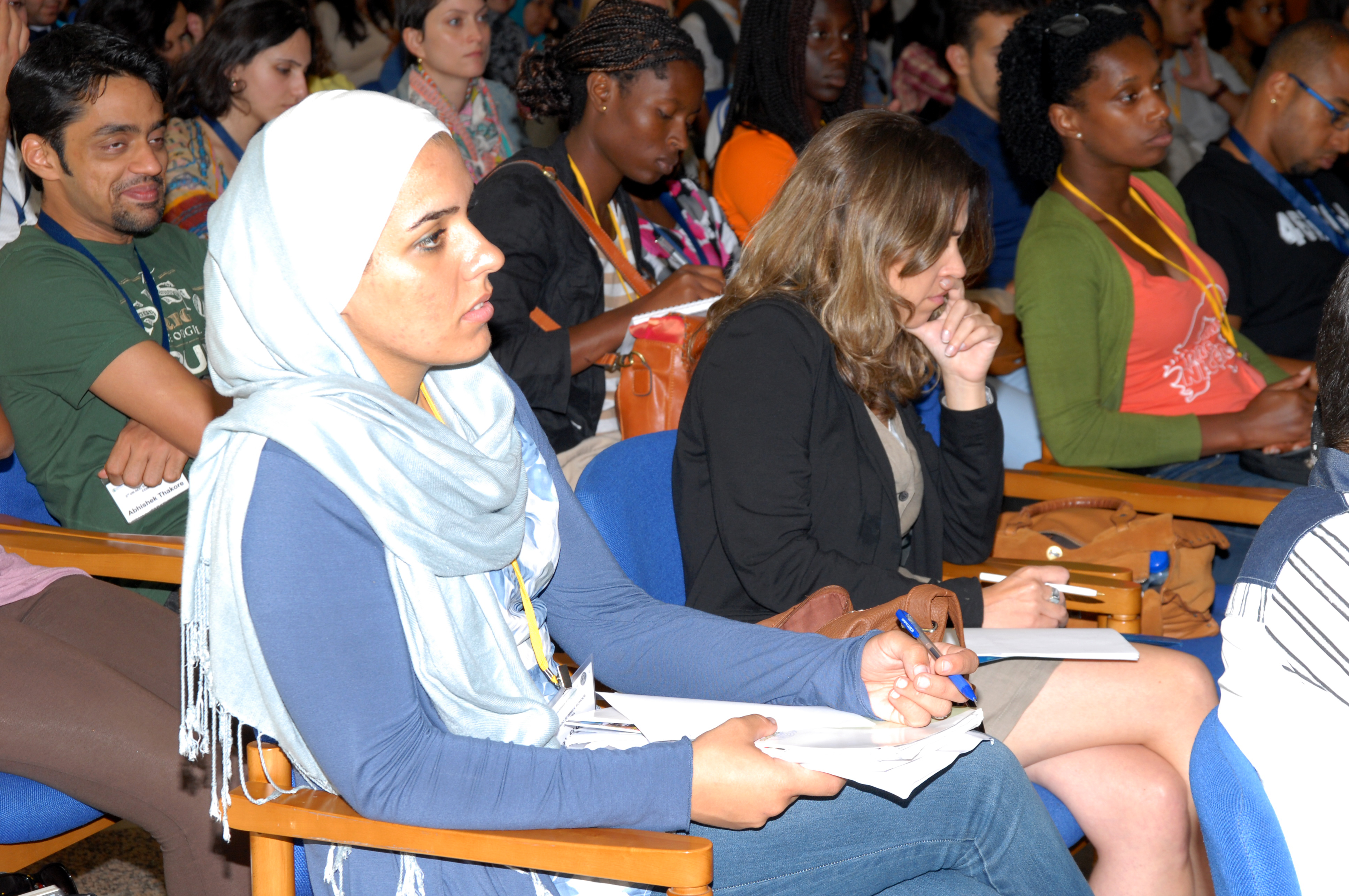 Alliance of Civilizations Summer School participants take in a lecture at the Ismaili Centre, Lisbon. Courtesy of the Ismaili Council for Portugal
Alliance of Civilizations Summer School participants take in a lecture at the Ismaili Centre, Lisbon. Courtesy of the Ismaili Council for PortugalBridge-building between cultures and religions through dialogue and cooperation is an important means to promote a peaceful and humanistic society. Recognising this, the Ismaili community and Jamati institutions in Portugal have long been supportive of efforts to share knowledge in areas as diverse as social development, citizenship and social inclusion.
In August, the third edition of the Summer School of the Alliance of Civilizations – an initiative of the United Nations – took place in Portugal. The Aga Khan Development Network, a long time Alliance of Civilizations partner, was among more than one hundred countries and international organisations supporting the programme.
Titled Bridging Hearts, Opening Minds and Doing Things Together, Summer School welcomed over 140 youngsters, representing national student organisations and voluntary associations of more than 60 countries. It sought to provide participants with the knowledge and tools to grapple with diversity, and see it as an asset in building mutual trust, engaging in cultural exchange.
 Dr Farid Panjwani delivers his presentation at the UN Alliance of Civilizations session held at the Ismaili Centre, Lisbon. Courtesy of the Ismaili Council for Portugal
Dr Farid Panjwani delivers his presentation at the UN Alliance of Civilizations session held at the Ismaili Centre, Lisbon. Courtesy of the Ismaili Council for PortugalThe Ismaili Centre, Lisbon – described as “a symbol of peace and tolerance for different cultures and religions” by Dr Helena Barroco, diplomat and Special Advisor for the Alliance of Civilizations – was chosen as the venue for a Summer School lecture on “Muslims and Modernity”. Delivered by Dr Farid Panjwani, a professor at Aga Khan University Institute for the Study of Muslim Civilizations, the lecture discussed diversity and pluralism within Islam.
Islam is not a monolithic concept, as it is often portrayed in the media, said Dr Panjwani, but rather a multidimensional phenomena. This is a fact that new generations and modern education systems are slowly coming to realise.
“When talking to young people we get a sense that there is an increasing recognition that there is no other way but to recognise this diversity among Muslims,” he says, which is “a source of good.” He adds that “the educational system can play an important role here. There is now a growing recognition that education systems need to bring out this diversity.”
 Ismaili Council for Portugal President, Amirali Bhanji, Helena Barroco, Advisor to the UN High Commissioner for the Alliance of Civilizations, and AKDN Resident Representative for Portugal and Mozambique Nazim Ahmad at the Alliance of Civilizations Summer School session held at the Ismaili Centre, Lisbon. Courtesy of the Ismaili Council for Portugal
Ismaili Council for Portugal President, Amirali Bhanji, Helena Barroco, Advisor to the UN High Commissioner for the Alliance of Civilizations, and AKDN Resident Representative for Portugal and Mozambique Nazim Ahmad at the Alliance of Civilizations Summer School session held at the Ismaili Centre, Lisbon. Courtesy of the Ismaili Council for PortugalAmong the other speakers were academics and personalities such as Anna Walch of the Austrian Federal Ministry for European and International Affairs, as well as Dr Daryoush Mohammad Poor and Dr Laila Halani from The Institute of Ismaili Studies. The nine-day programme addressed cultural violence, tolerance and respect for diversity and the importance of pluralism in societies. The role of women and youth as active agents of change was discussed, as International Youth Day was celebrated.
Ismaili Centres around the world contribute in many ways to promoting recognition for the value of diversity, and this UN Alliance of Civilizations programme presented another such opportunity. During a question and answer session at the Ismaili Centre, a young delegate from Uganda, said that Summer School participants “have the responsibility – when returning to their countries, to their organizations – to explain to others, the true notion of pluralism: [One] that emphasises what unites us, a concept very different from tolerance that limits [us] to forbear our differences.”






